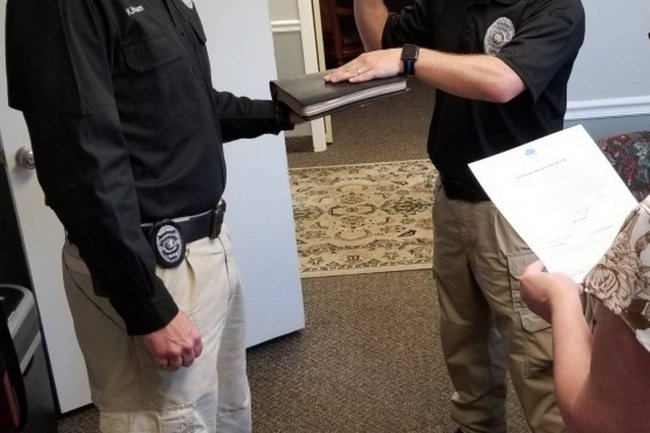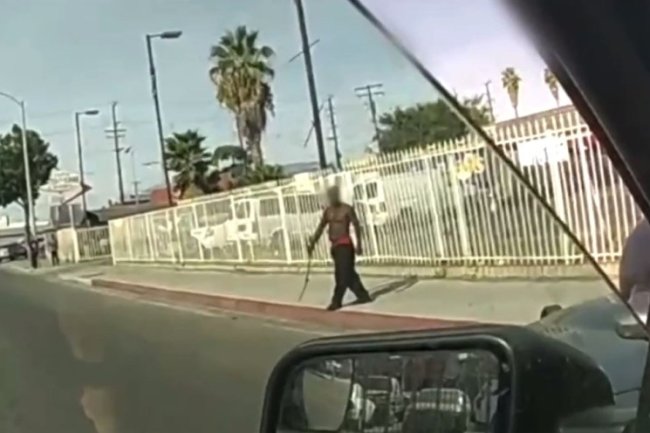Making family phone calls free for prisoners is a cheap tool for reducing recidivism
In the 17 years Shannon Ross spent behind bars, phone calls with family helped him get through tough times. They helped him maintain his mental health, and when he was released from prison, he felt like the weekly communication eased his transition to life outside of prison.Ross, 39, spent nearly half of his life in prison for a murder he committed at 19. After he was released in September 2020, he became a first-time dad. He completed his bachelor's in prison then got a Master's in Sustainable Peace Building at the University of Wisconsin-Milwaukee after he was released.He credits some of his success since being released to the phone calls that kept him in close contact with his parents — hearing their encouragement and keeping him informed on the things he would have otherwise missed, like birthdays and anniversaries.“I was lucky. My family could afford it, although I know many families can’t,” said Ross, founder and executive director of The Community, a nonprofit newsletter and org

In the 17 years Shannon Ross spent behind bars, phone calls with family helped him get through tough times. They helped him maintain his mental health, and when he was released from prison, he felt like the weekly communication eased his transition to life outside of prison.
Ross, 39, spent nearly half of his life in prison for a murder he committed at 19. After he was released in September 2020, he became a first-time dad. He completed his bachelor's in prison then got a Master's in Sustainable Peace Building at the University of Wisconsin-Milwaukee after he was released.
He credits some of his success since being released to the phone calls that kept him in close contact with his parents — hearing their encouragement and keeping him informed on the things he would have otherwise missed, like birthdays and anniversaries.
“I was lucky. My family could afford it, although I know many families can’t,” said Ross, founder and executive director of The Community, a nonprofit newsletter and organization working to help recently incarcerated people transition back into society.


He estimates his parents spent between $15,000 to $17,000 to receive phone calls from him in prison. Wisconsin is one of a dozen states where bills have been introduced or are being drafted allowing for free or reduced calls in jails and prisons.
Why? Mounting evidence that maintaining family ties not only helps inmates, it improves outcomes for their children and reduces violent incidents in prisons. Currently, Wisconsin has some of the highest rates for calls from prisons and jails and is considering upping the fees it charges inmates for sending e-mails.
Sharon McMurray, executive director and CEO of Table of the Saints, Inc., a group that helps incarcerated people make a positive transition back into the community and family life, said the phone calls from prison are a vital lifeline for the parent and the family. Especially in Wisconsin, which leads the nation in Black incarceration rates.
One of every 36 Black Wisconsinites is in prison, according to the Sentencing Project’s 2021 report, “The Color of Justice. Racial and Ethnic Disparities in State Prisons.” The report noted that Blacks represent just 6% of the state’s population but comprise 42% of prisoners.
“We know how expensive everything is now, and people make tough choices daily. One choice they should not have to make is talking to their incarcerated loved ones,” she said.
While phone calls are essential, McMurray said she didn’t think phone calls should be free.
“The price should be reduced, but I’m unsure if they should be completely free. People should still need to earn the right to use the phones,” she said.
High incarceration rates and fees to maintain family ties
In Wisconsin, inmates' phone calls in state prisons are six cents per minute, and prisoners are given a maximum of 20 minutes per phone call. So, the total cost for a 20-minute phone call is $1.20 plus a $3 to $6 surcharge every time someone puts money into an account to add money for a phone call.
Milwaukee County Jail calls are 21 cents a minute, but calls at other jails across the state can range from $1.80 for a 15-minute call in Jefferson County to as much as $14.77 in Green County, according to a Prison Policy Initiative survey of 30 counties. Last year, a plan for free calls for inmates at the Milwaukee County jail was blocked due to to budget concerns.
The survey shows Wisconsin has among the “highest costs of a 15-minute in-state call from a jail,” at $21.97. The only states with higher average costs are Arkansas at $24.82 and Michigan at $22.52. West Virginia charges the least at $1.80.
While the cost of six cents a minute for a prison call may seem like just pennies to most, keep in mind that while the state’s Black population is 7%, African Americans make up 38% of the prison population, and due to the large wealth gap in the state, Blacks only make 42 cents for every $1 whites make.
Inmates and families need more affordable deal, but it should not just be limited to phone calls, Ross said. Starting Sept. 1, for example, inmates will pay 15 cents per email, up from the 10 cents they currently are charged.
“They nickel and dime inmates every chance they get. It’s not right because if you look at who the inmates are, they are already poor,” he said.
More: Many Wisconsin counties earn thousands from jail phone calls. Inmates and their families pay costs
A 2021 investigation by The Post-Crescent and study by the Prison Policy Initiative found that Wisconsin inmates and their families were being gouged by telecommunication companies.
The concept of making phone calls more acceptable financially to inmates is not a new one. Two years after pledging to make phone calls free to their 13,000 people incarcerated in Los Angeles, the Los Angeles County Board issued a deadline in July to make phone calls accessible by Dec. 1.
The board said the decision comes after growing pressure from advocates and attorneys who say inmates and their families – among the state’s poorest residents – are being extorted due to the steep prices.
In 2021, Connecticut became the first state to make all prison phone calls free. Since then, California, Colorado, and Minnesota have followed.
Children who remain in contact with incarcerated parents do better in school
The changes are being driven by evidence that maintaining family ties is better for everyone. A study by The Marshall Project shows that a phone call helps inmates to keep up with the going on in their family lives, reduces the chances they will go back to prison after they are released, and help improve the outcomes for their children.
In the U.S., 1.7 million children have parents incarcerated in prison, and millions of additional children have a parent incarcerated in jail, according to the report “Children’s Contact With Their Incarcerated Parents.” The study showed:
Children who had contact with their incarcerated parents reported fewer feelings of alienation toward that parent than children who had no contact calls, visits, or letters.
Children with incarcerated parents who get phone calls, visits, or letters are least likely to dropout of school or get suspended.
An analysis of 92 incarcerated mothers with young children found that children who visited and talked to them on the phone were likelier to express warmth, closeness, and loyalty to their mothers.
Another factor for moving toward free or reduced-cost phone calls: the safety of corrections officers. The more communication inmates have with their loved ones decreases the rate of violent incidents in prison by 20%, according to the 2013 study “Ways of Coping and Involvement in Prison Violence.”
Former inmates say phone calls, family contact kept them going
Over the years, I have taken dozens of phone calls from prisoners who wanted to talk to me about their cases or inform me about the abuse they deal with while incarcerated.
When I worked on the project, “Life Correction: The Marlin Dixon Story,” which chronicled the life of a young man who was sentenced to 18 years behind bars at the age of 14 for his part in the mob beating death of Charlie Young Jr. in 2002, I started communicating with Dixon via letters and calls eight months before he was released from prison in 2020.
Dixon said the phone calls to his mother kept him going when he wanted to give up. He knew it was sometimes hard for his mother to scrape up the money for calls, so when he started working behind bars, he used his money to make calls home.
“When you are locked up, people on the outside keep living," he said. "They travel, have birthdays, go to parties, and sometimes you don’t have anything going on when locked up. Those calls are all you need to keep going."
James E. Causey started reporting on life in his city while still at Marshall High School through a Milwaukee Sentinel high school internship. He's been covering his hometown ever since, writing and editing news stories, projects and opinion pieces on urban youth, mental health, employment, housing and incarceration. Email him at [email protected]; follow him on Twitter @jecausey.
This article originally appeared on Milwaukee Journal Sentinel: States moving to free phone calls for inmates to boost health, safety.
What's Your Reaction?






















